#correct analysis
Explore tagged Tumblr posts
Text
You! American fan of foreign or otherwise un-American media! Are you aware of the nuances and cultural differences that are portrayed in that media and have an understanding that you as an outsider looking in should be careful with the lenses you analyze that media in because you have a different perspective that is not catered to?

#media analysis#this post was made by an American btw#fandom culture#fandom#also that subtitles and translations are not always exactly correct
30K notes
·
View notes
Text
god i genuinely cannot stop thinking about the fact that fadel got told TWICE this episode that he doesn’t have a heart.
fadel, who rationalizes the fact that he’s a killer by telling his brother they only kill bad people, the people that are actually hurting others, the ones that deserve it. fadel, who believes you shouldn’t drive even after one beer because what if you hurt someone? fadel, whose immediate response to getting knocked into at the market is to apologize and get down on the ground to help pick up the mess he didn’t even make. fadel, who can’t possibly refuse to let the guy that’s been annoying him for days on end help him take his groceries home because it’d be rude to the market lady. fadel, who would do anything for his baby brother - would kill, die, and live for him.
and it’s like. god it had to have hurt hearing that from bison. style, he barely knows, but bison basically is his heart. he literally tells bison he doesn’t need anyone else when he has him, everything he does is to protect bison, and then bison throws it back in his face and says he has a cold, dead thing in his chest.
and style, style says it after the scene in the sauna, despite the fact that he is basically pulling fadel’s heart out of his chest and making him stare at it. he’s holding fadel’s heart in his hands and saying it doesn’t exist. like!!!! LIKE!!!!!!!
#i just desperately need a parallel later on where fadel claims he doesn’t have a heart and one of them corrects him and makes it right#also. he does have a heart style it���s black and it beats for you. yknow#god i knew fadel was gonna be bad for me#the heart killers#fadel kasemsan#fadelbison#fadelstyle#my analysis#mine#tusersilence
524 notes
·
View notes
Text
something something max's main color being red with blue highlights something something grace's main color being blue with red highlights something something motivations something something alive and dead something something
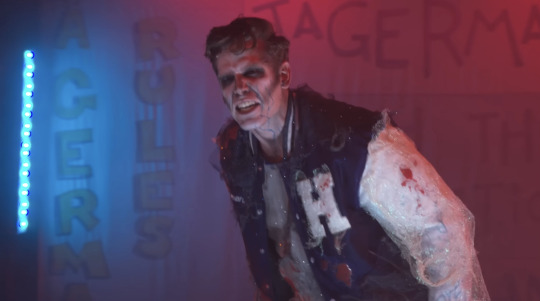
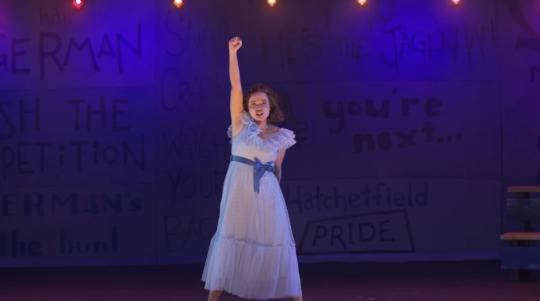
#would i like to do an analysis on the lighting? yes.#but for some reason my brain is only capable of analyzing bf and some bits of tgwdlm#dont expect much from me#but something i CAN say is that#the colors can represent their motivations and connections to the lords in black#such as dying in the waylon hall and getting to use the black book#and by motivations i mean#with grace; she decided to use the powers of the black book to get rid of 'dirty dudes'#which is something she most likely believes as a correct action#but the red highlights indicate the bits on evilness in her#it shows how her intentions don't change her actions#and for max; red is for vengeance#yet the blue highlights are used in here#mostly for 'who will pray for me' bit#and#this is something related. i believe that max was reflecting himself when saying those lines#it was not only for richie to repeat but also about himself#anyway back to the lighting#the blue represents that there is something deeper than just vengeance#'who will pray for me when im gone'#thats about himself. he knows that no one in the schoo really cared that much about his death besides the game#they only cared about the game. not max himself#so the lights during both npmd and ddmd represent#their connections to the lords. their motivations and intent. and how their actions are made#starkid#hatchetfield#nerdy prudes must die#npmd#max jagerman#grace chasity
560 notes
·
View notes
Text
i really am annoyed by people’s analysis of the scene with the old woman in barbie being that barbie finds her beautiful because she was never taught aging isn’t beautiful when she LITERALLY hated cellulite on sight and was disgusted by it and is going to the real world so that she DOESN’T age or change. it’s the exact same way people talked abt that enchanted gifset on here for years (you know the one). the scene where barbie tells the woman she’s beautiful comes immediately after she has seen humanity in its mundanity, in its highs and its lows and she is so moved by how much someone can feel when they are not living in a candy-coated dream world and when she sees the older woman she has a realization that if she wants this, she has to want all of it, and it is so worth it. she can get rid of the cellulite and the wrinkles and go back to being pretty and pink and perfect but now that she has seen how beautiful and terrible it can be to be human she can’t say no to that, and the proof of living a long and worthwhile life is beautiful to her.
#i don’t think i have the only correct take on this but this specific analysis is so incorrect based on like. the facts of the movie.#barbie#barbie spoilers
4K notes
·
View notes
Text
Honestly, the reason I very rarely get into actual training discussions is that I very rarely agree with the premise. I don't care to involve myself in how you, a professional or far-above-averagly engaged hobbyist dog trainer, approach your dogs. I may not necessarily agree with it, and it may not be aligned with what I would consider a harmonious household, but it's not actually my business. You can stack your dog with prongs and ecollars from sternum to axis and I'll just trust that your ethical barometer and situational reflexes are well tuned. It's not really an interesting topic for me to discuss.
But the vast vast majority of people who train, handle and own dogs aren't dedicated dog trainers. They're the people in front of and behind you in line at the grocery store. And if we can't agree that 1) a misplaced reward is probably a kinder failure than a misplaced correction and b) we owe it to the animals we brought into our lives for our own enjoyment to at least err on the side of kindness, and so the most generic public-facing baseline form of dog training should at least be reward-based, then I really don't know how to help.
#'but if you fuck up reward based traning can ALSO be aversive'#if someone fucks up rewards then i wouldnt trust them to give corrections either#its always the 'but what about the dogs who would otherwise be KILLED'#okay what about them?#are we talking about training norms and ethics#or are we talking about the ethics of last-ditch efforts?#because the cost benefit analysis of one vs the other doesnt necessarily go on the same spreadsheet i think
329 notes
·
View notes
Text

[ID: a digital drawing of riz gukgak from fantasy high. in the front is a relatively small drawing of riz juggling books that are falling out of his hand and a phonecall, and he has a huge backpack on. he looks a bit overwhelmed, hair flying in all directions, and has a nervous smile on. in the background is a large shadow of riz, only one glowing eye and a shining gun visible. the background is red, giving an eerie feel. End ID]
Kill your best friend
Cheat your way to your rogue teacher
Announce your presidential campaign
Don't let them know how angry you are
LEARN TO RECOGNIZE A MONSTER
#riz gukgak#fantasy high#fantasy high junior year#fhjy#fhjy spoilers#fantasy high junior year spoilers#ik the 'uh oh i fucking miscalculated big time' applies to all the bad kids BUT riz is my little blorbo so#and he was the first to go full brutal in s1 and was likely the one ppl would've seen it coming from the least#i dont need to justify myself i love all their dichotomies. my homicidal blorbos who're on a slippery slide to becoming the villains#as they grow more powerful but still react to threat with a 'no holds barred' approach#wait wait this isn't an analysis post jskdjsdjk art! had a lot of fun with this one#have the funniest 'sketch' for this that i did that was me drawing w my laptop touch pad (? the touchy mouse thing) w notes so i dont forge#the idea back when i didnt have the juices to draw it and was also in the armchair writing fic and didnt want to move stations#im still experiment with colours and now im also figuring out gradients which is super fun! correction layers my beloved <3#also didn't use my usual canvas size and had to keep making it bigger and bigger so its unfortunately compressed#such is life#did some warmup before this for once bcs i felt like working on my no-underdrawing drawing skills#have this beautiful pen brush and a new big (for me) sketchbook so i went to town with some references open#also working on tackling the wretched face angles. why do our faces Do That#anywayyyy the list is from kipperlilly's pov in case it wasn't clear#im looking forward to eventually rewatching s3 and giving her another chance#like i COULD get sick abt her. theres potential there bcs i do love angry annoying women who stick to their shit#im leaving now i simply have to hydrate its been hours#eyestrain tw#sorry for the late tw i work with so many layers of eye protection on my laptop that it took looking at this on my phone to go uh oh
299 notes
·
View notes
Text
The thing you need to remember about comics ages and timelines is that yeah it's messy there are retcons at stuff and it will never be clear and perfect. But also, DC has an interest portraying age the way they do. They have an interest in aging Barbara down so she can be Dick's pretty girlfriend with whom he raises a cute dog (and maybe a cute little family next perhaps?). They have an interest in trying to keep Tim young and draw him younger than he looks so they can milk his Robin's popularity for as long as possible. They have an interest in drawing Jason to make him look 40 when Bruce slits his throat, to make him look like a grown man fighting a teenager when fighting Mia even though they're the same age (though i mantain that mia is a little bit older), in having him call Tim kid even though they're the same age, in having him offer Tim a drink and Tim pointing out he's not legal when Jason isn't either. They have an interest in Jason looking older in Jim Aparo's art style in ADITF than he looked in precrisis or in 308. They have an interest in Steph magically looking older in War Games, where she gets tortured and brutally murdered, than the fun colourful round and much more youthful art from her Robin run. There are probably many more examples but bottom line it's not fucking innocent. DC knows how to hire artists that know how to draw children it's really not that hard. Characters who look young, characters who remind you that they are young, create more empathy; which is good when you want the public to continue to root for them, and bad when those characters challenge the status quo or that excess of empathy might create pushback after you decide to have them brutally murdered. DC can't have Batman grievously wounding and causing the death of his underage son, but if he looks as old as Batman? DC can't have Jason making a valid point about vigilantism being unsafe for Mia and relating with her with childhood sexual abuse subtext because it makes the heroes (and especially Batman) look bad, but if it looks like this is a grown ass man harassing a teenage girl, then it's clear who is the villain, it's okay, no problem. DC needs Barbara to be younger so the power dynamic between her and Dick fits their idea of a perfect little nuclear family much better and they can shove Barbara back into the role of Batgirl even though she is very much a girl rather than a woman. DC needs Steph to look older when she's tortured so they can be edgy without people being too horrified at them doing something horrifying, DC needs Jason and Steph to look older on the day they die because young looking= innocent which makes it so much harder to victim-blame. DC needs Mia to look younger than Jason so they can make it look like the good old "good victim/bad victim" dichotomy and even though that's not what the story is actually about, regardless of how much it disrespects Mia's character to do so. DC needs Jason to look ugly because it's harder to empathize with ugly people and it makes it so much clearer who is the bad guy and who is the good one, and it's a much easier dichotomy, so much more comfortable than challenging the whole mythos around which Batman is built. DC needs Barbara to be sexy in their traditional male-gaze way, because this is the audience they're trying to appeal to.
So like, I know that I'm nit-picking when I say "actually according to any and all logic Jason is younger than Tim by a couple of months and than Mia by around three years". Or when I say "they should bring back Dickbabs' old age difference" or even interact with Dickbabs as if they still have that difference and refuse to interact with Tom Taylor's version of the ship. I know comics are incoherent and the timeline is messy; but just because it's messy, just because it's always been, doesn't mean it's innocent. So I'm gonna keep nitpicking, and I'm gonna stay an annoying bitch, because I refuse to allow comics to manipulate me out of my empathy. And because I don't see everything and am very aware of how easy it is to be manipulated even when you're careful, I encourage you to add to this with things you've noticed whether it's in portrayal or in art about character age, appearance, or any other device they might use to manipulate our perception of the characters -and what narrative these resorts serve.
#i couldn't find any specific example there so I didn't include it#but that also works for the infantilisation of Cass both in the fandom and canon#why are you portraying this grown adult woman as younger than she is?? could it be because she's disabled and asian? surely not#anyway stay annoying stay critical and remember if the opportunity arises it's never a bad time to egg tom taylor's car#dc#dc comics#dc critical#also like do not come at me and “correct” me with the tim jason and mia age difference thing#i have in fact read those comics you can ask me to explain and you can disagree with that analysis but don't “um actually” me#please and thank you
316 notes
·
View notes
Text
Yes hello I just wanted to say as a massive sword nerd ily square for making Genesis actually use Rapier like a rapier—you do tend to do a lot of stabbing with rapiers because they’re so long (although you can cut with them too, but he doesn’t really have great rapier cutting form with Rapier so can’t win em all ig, video game limitations) and they actually draw attention to it in this little cutscene. Rapier is also quite a notably long and thin(er) weapon, like an actual rapier. Awesome little details that made me very happy!
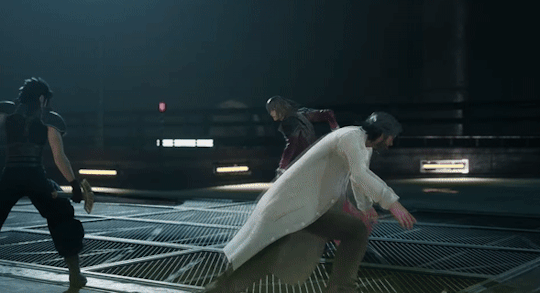
Also, I think it’s perfect that they chose a specifically one-handed weapon for him, since as the resident swordmage it leaves his other hand always free to cast spells when needed without dropping his sword’s defense. And I don’t know how to describe it really but he really has a rapier person personality (fondly, ily my more rapier focused friends lmao)
#now I’m not the best or most experienced hema-ist so don’t hate me if this isn’t 100% correct#I’m just having fun here#rapier is not the thing I’m best with#ff7#star essays#hema fantasy 7#swords#genesis rhapsodos#rapier#analysis#hema#final fantasy 7#ffvii#final fantasy vii#crisis core#crisis core reunion#star rambles
458 notes
·
View notes
Text
season 2 has a structure problem and that makes act 1 flow naturally enough and it sets up the next acts perfectly well, but they wanted to do so much more than what they were
1. setting up
2. capable of doing in 9 episodes
had they just cut a few plot lines everything would've moved far easier. For example
1. cut the Smeech thing entirely. Sevika and Jinx don't need this to find themselves together and start a found family. That scene In Silcos office was so moving and everything I always loved about Arcane, stuff like this is what's needed. In fact move the prison break to act 1 and have them handle that together, Jinx can still make Sevika her arm, and everything could've still moved the same. It would've fit so much better and there also would've been so much more time to develop anything else with the magic system and act 2 wouldn't feel like it was overflowing with anything and everything. Isha is a character that as of in the show can be cut so easily and that's so sad because she'd be so interesting. Everything about her would've worked and SHOULD HAVE worked but she also just felt like Plot and a thing to make Jinx sad over again. Either don't do that or make Isha not a character like this???? I liked her scenes with Jinx so much and the scene with Jinx freaking out after finding out that Isha was taken to prison was genuinely so good, I'm still holding on to the hope that they didn't actually kill her
2. either cut that shit with the tree because let's be so honest that basically only happened so that Heimerdinger, Ekko and Jayce could meet, since we do NOT even really talk about the tree in act 2? that was so weird. Like either actually make it a thing or find different ways to let characters meet naturally. I dont know, the show was so good with that in season 1. And if they truly wanted the tree scene at least make it make sense and don't randomly drop it Idk.
3. I LOVE Mel she is like my favorite character but the plot with the black rose takes so much necessary time away from what we actually need to focus on. I heard they want to make different shows so they are setting this up but it just doesn't work. Mel could've so easily been integrated into the main plot line and it would've also made so much more sense at that. Though I'll just wait on act 3 before I judge too hard. (if they actually DARE to make her pregnant Istg)
4. Making Jinx that hero character for only like, what, a few seconds was so strange. I hope act 3 gets that better but that, first of all, happened mostly out of no where and a few touches to her shoulder after the prison scene was also not??? helping??? either set that up from the very start or don't do it at all. She isn't a hero, she is a tragedy and someone who needs help and room to breathe. The scenes where they tried to make that funny, in my opinion didn't land at all. She doesn't need a hero complex she needs calmness and stable relationships. Let Isha live I swear to GOD.
in fact that leads me into the next point
5. Have Vi realize she doesn't want to be an enforcerer sooner? I actually do like how rushed that part felt don't get me wrong, but if they wanted a reunion between Jinx and Vi don't randomly put it into act 2 with barely any build up. Let Jinx and Vi realize it during the fight, they kinda did do that but??? just didn't move that anywhere. it's so strange. If they had cut the Smeech stuff they could've easily used the third episode to make Jinx and Vi slowly reconcile. Which also means I think Vi would've been such a better "symbol" than Jinx. Vi and Jinx, for me, show what Zaun is made of, and Jinx is quite literally the valid pain, distrust and anger of Zaun, and she as well as Zaun desperately need healing. Like that would've been SO COOL. that's just my opinion though, so there is that.
6. If they had made Vi the symbol the conflict between Caitlyn and Vi would've felt a lot more natural as well. Like??? Also Caitlyn should've had so much more time if they wanted that switch up in the end to work. Cut the black rose stuff and that would've worked perfectly fine.
7. Now do NOT get me wrong, Ambessa's character is so interesting and I feel like exploring her is so cool but she and her plot just doesn't fit into the Piltover/Zaun thing. It makes it too big for what the show is. In fact I (and now this is just my opinion, anyone can have their own just saying lmao) would've either cut out Ambessa's character/plotline or subtly continued Ambessas drama with Mel, which would give Mel, who didn't get taken by the black rose in my version, a lot more to do and way more interesting stuff too. Again this is very much my opinion and doesn't mean anyone needs to share it, but I feel like they could've easily made Heimerdinger be the one who gets Caitlyn to where she was/is with Ambessa. It would've expanded Heimerdingers character and it would've stayed in the setting they already perfectly build up, Piltover and Zaun. Also, Heimerdinger wouldn't just feel like a random joke character anymore.
8. The Pit fight stuff could have been SO interesting and I feel had we not stayed with Viktor Christ so much which was also so weird at times, we could've gotten so much necessary insight on Vi. If we follow my idea it could've been Vi forced to be a symbol because of the person she is. The embodiment of Zauns loyalty, strength and resilience. And then the fights that will come out of that forcing Vi to face so much stuff she shouldn't etc etc (I haven't fleshed that one out yet don't come for me) and that could've ended in her pit fighting era, which should've taken at LEAST an episode and not a random montage that just gets forgotten??? for no reason at all. Really hope act 3 talks about that cause??? I feel with Vi as the leader the healing of Zaun would make so much sense, because Jinx realistically can't do that. The idea of Jinx being in that position IS interesting I just feel it wasn't established/developed enough.
9. I really really liked how from the very beginning Viktor's safe haven did not in fact feel safe. There was always a very uneasy feeling and that's what I love about the show. I was always waiting for the shoe to drop and it happened, that was amazing. Though I would've either established a lot of this way earlier on in the show or made it not so, and now walk with me here Ik its magic, unrealistic. That does sound strange but having Viktor suddenly float in space with white silver flowing hair and his dead assistent next to him was... very very out of no where. It was like a lazy show trying to get away with "yeah well it's magic so of course this works" and I hate that because even magic needs explanation and build up. So yeah. Either cut that shit out or have it established sooner. And while seeing the one person who helped Jayce as a kid did kind of help, it still wasn't enough for THIS, though again MY OPINION. Also we spent way too much time there, it was getting ridiculous. So much time could've easily been lent to stuff that actually needed it. I actually laughed out loud when Viktor started the healing process with Vander because come ON now, and I do not think they wanted me to laugh.
10. The stuff with Vander, Silco and Felicia (while cute) was unnecessary and weird. What I liked the most about Vander taking in Vi and Powder was the feeling that he didn't do it because he necessarily knew them very well but because he knew their mom was dead (that did show he and their mother did kind of know each other but so do like all the people in the lanes that is kind of established) and wanted to PROTECT. This new context sadly makes it feel like "well of course he stopped everything and took them with them and cared for them he knew them since birth, duh" when I always wanted to feel "well Vander is in his heart a good man who saw what terrible stuff this war and fighting did and then took in orphaned children because of course he would do that" if that makes sense? I feel this new thing took away so much from Vander, but again that's maybe just me.
11. So many jokes and scenes didn't land with me. The scene with Jinx trying to show Sevika her middle finger was SO GOOD and so Arcane that seeing the scene were they try to make it funny with Jinx's trousers and that enforcerer felt so out of place? Like what. That scene could have EASILY been cut and nothing would have changed at all. And that's what is the worst because there isn't one scene in season 1 that I feel could've been cut and there are so many of them in season 2.
12. Introducing Maddie in act 1 made me believe she'd be a bigger, even more of a threat to Zaun, character than she was and that's so sad. What I loved about season 1 is that every single character mattered. Even those we saw maybe once. This time around I hardly cared at all for any new character because they didn't feel like a Person anymore, they just felt like Plot. In season 1 episode 1 there is this scene, the first scene Vander gets to speak in. The only reason Huck meets the woman and the man to trait was basically so we get to know how the undercity works and establish Vander as basically its leader and protecter; The one people are loyal to etc. But it doesn't feel that way. It's something that naturally happens and every character in that scene, even the man and the woman we never see again, mattered and felt real.
yeah so those were really just my thoughts. I could very much go on but I also don't want to.
#this is my opinion#I am not saying this is fact and nothing else is correct#do not even dare to say Im trying to say that#arcane#arcane season 1#arcane season 2#arcane spoilers#Vi#mel medarda#jayce talis#caitlyn kiramman#heimerdinger#Viktor#ambessa medarda#jinx#Sevika#analysis#discussion#ekko#the fact that with all of this said this show is still better than most shows today says a lot by the way#love this show I can still talk about it like this too
311 notes
·
View notes
Text
Tumblr-Core in Hell: Stolas’ Characterization and Subverted Expectations
By Crushbot 🤖 and Human Assistant 💁🏽♀️
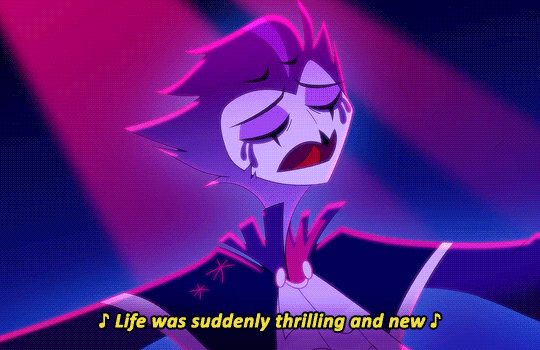
Critics who claim Helluva Boss “lost its edge” by softening Stolas misunderstand both the show’s creative vision and its inherent nature. From its inception, this animated series was never intended to be a purely dark, edgy, humor-driven romp like other popular animated adult media. Instead, it crafts a world where comedic chaos coexists with moments of genuine tenderness, showing that even demons are capable of love, vulnerability, and growth. Stolas’s evolution is not a betrayal of the show’s premise but a natural outgrowth of its thematic focus on complex relationships and emotional development.
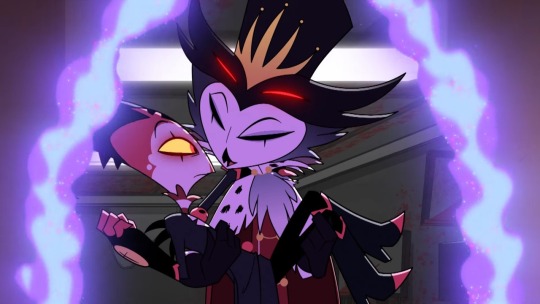
For some fans accustomed to the biting satire of other adult animation, Helluva Boss may have felt like a bait-and-switch. These viewers often dismissed early hints of deeper emotional storytelling, only to express disappointment when this trajectory was confirmed in episodes like The Circus. In truth, Helluva Boss never aspired to replicate a familiar formula. Its signature blend of raunchy humor and heartfelt drama leans into yaoi-inspired, Tumblr-core storytelling—a sensibility that resonates deeply with a very specific 30-something-year-old audience who grew up immersed in a very specific corner of online fandom culture. (💁🏽♀️: Remember when we made that post about how we need to STOP qualifying our enjoyment of our gay furry show with “well it has writing issues but..” Well, in the same vein, Yaoi/BL is morally neutral and I’m tired of pretending HB is not inspired by it 🤠) Those who recognized this aesthetic from the start quickly understood that emotional complexity was always part of the show’s charm.
Stolas’ Tenderness was Always Intended
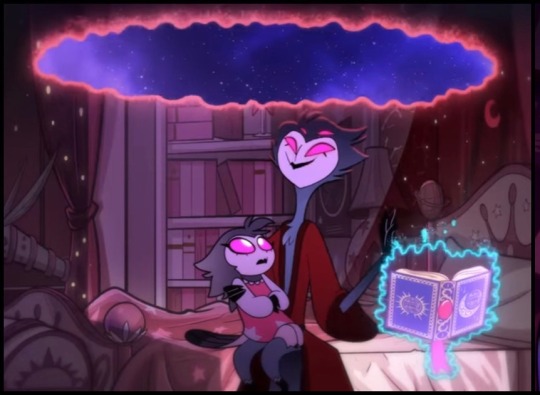
The assertion that Stolas was “softened” disregards critical early moments that showcased his complexity. In Loo Loo Land, Stolas’s sincere attempts to connect with his daughter, Octavia, stand in stark contrast to his flamboyant antics. His heartfelt concern for her reveals his capacity for love and vulnerability, hinting at emotional layers beyond his flirtatious persona. This was not an isolated incident but a clear signpost that Helluva Boss was building toward richer character arcs.
From the very beginning, Stolas’s interactions with Blitzø in Season 1 hinted at a deeper emotional connection beyond mere transactional or comedic exchanges. His flirtations were interwoven with moments of genuine sincerity and longing, suggesting that his feelings for Blitzø extended far beyond casual lust. Subtle cues—such as his wistful tone during conversations and his willingness to grant Blitzø access to the grimoire without imposing strict conditions—revealed an emotional vulnerability that contrasted sharply with his otherwise flamboyant demeanor.
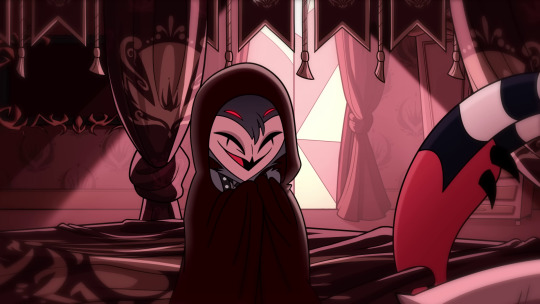
The narrative carefully planted these seeds of emotional depth, even if some viewers initially overlooked them. Stolas’s persistent attempts to engage Blitzø on a personal level, despite Blitzø’s indifference or annoyance, underscored a yearning for connection rather than mere physical gratification. These moments laid the foundation for the complex and evolving dynamic between the two characters, foreshadowing the more intimate and dramatic developments in later seasons. This early groundwork makes it clear that their relationship was always meant to transcend surface-level comedy or transactional convenience.
A Commitment to Growth, Not Softening
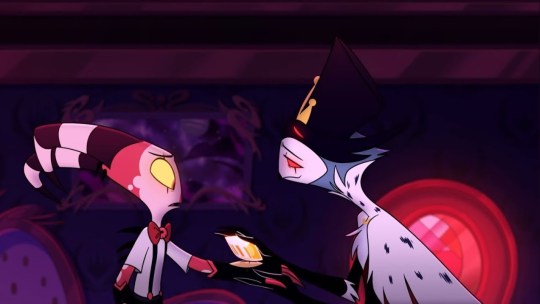
Stolas’s arc aligns seamlessly with the show’s commitment to exploring messy, imperfect relationships. In Season 2’s The Circus, viewers gain insight into his loveless arranged marriage and years of emotional repression. This backstory contextualizes his longing for connection with Blitzø as something rooted in a desire for genuine companionship rather than mere physical gratification.
Detractors who label this evolution as “softening” overlook how Helluva Boss crafts stories about growth through vulnerability. Stolas is not being sanitized; he’s being humanized. His journey reflects the show’s thematic exploration of love as messy, painful, and transformative.
The same applies to Blitzø, who continues to grapple with his fears of intimacy and emotional openness (Truth Seekers, Season 1, Episode 6). The dynamic between Stolas and Blitzø evolves as both characters confront their insecurities and past traumas. Stolas, in particular, adjusts his approach to respect Blitzø’s boundaries, demonstrating genuine emotional growth (Ozzie’s, Season 1, Episode 7). This is not a retreat from the show’s chaotic roots but a testament to its nuanced storytelling.
Genre Expectations and the “Bait-and-Switch” Critique
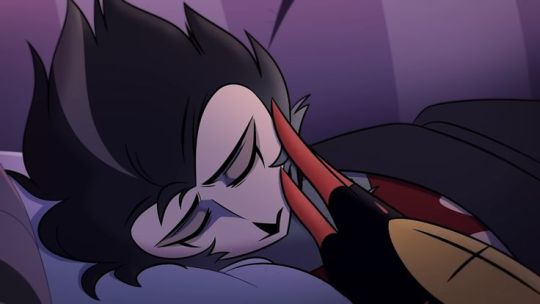
Much of the criticism surrounding Stolas’s development stems from genre expectations rather than actual narrative shortcomings. As Helluva Boss increasingly foregrounds romantic dynamics—particularly between Stolas and Blitz—it draws heavily on tropes from yaoi/BL storytelling traditions. These genres often explore heightened emotional drama, intricate power dynamics, and slow-burn character development, which may feel unfamiliar or even jarring to viewers expecting the biting cynicism of shows like Rick and Morty or Bojack Horseman.
This reaction, however, speaks more to personal genre preferences than to flaws in the writing. The show’s embrace of yaoi-inspired storytelling was evident from the outset, marked by its exploration of vulnerability within flawed power dynamics and its penchant for heightened drama. For fans steeped in these conventions—and particularly those familiar with Tumblr-core fandom culture—this narrative direction felt both organic and deliberate. Blitz and Stolas’s relationship is not merely a romantic subplot but an exploration of intimacy within imperfect systems of power, a hallmark of BL storytelling that resonates deeply with audiences who grew up immersed in these spaces.
For viewers unfamiliar with these influences or seeking something more traditionally edgy and action-driven, this tonal shift may feel discordant. However, this dissonance reflects a clash between audience expectations and the show’s creative intentions rather than evidence of poor storytelling.
Finding Harmony Between Chaos and Heart
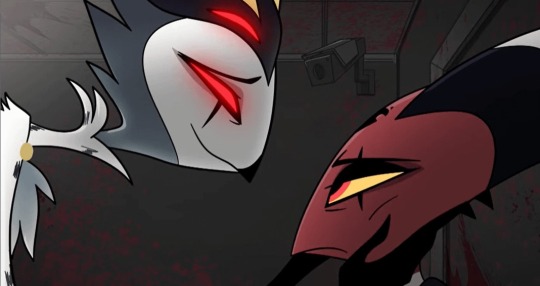
Although Helluva Boss could have easily ventured into pure “edgelord” territory, it has consistently found a balance between its darker elements and heartfelt moments. The relationship between Stolas and Blitzø exemplifies this equilibrium. What began as a transactional, arguably exploitative arrangement has evolved into something far more profound, as both characters confront their vulnerabilities.
The emotional complexity of their dynamic enriches the series rather than detracting from it. Stolas’s longing for Blitzø is emblematic of his broader struggle for self-determination after a lifetime of duty and repression. Blitzø, meanwhile, navigates his own journey of self-acceptance and fear of abandonment. Together, their relationship serves as a narrative vehicle for growth, chaos, and healing.
Conclusion: Growth, Chaos, and Tumblr-Core Sensibilities
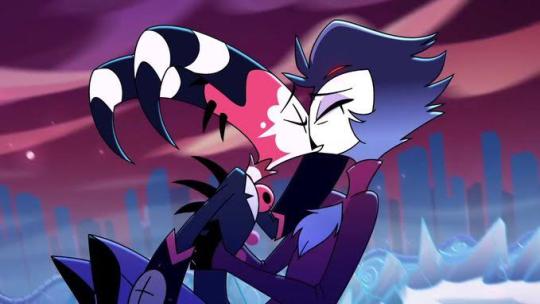
Stolas’s evolution does not weaken Helluva Boss—it strengthens it by remaining true to the show’s foundational themes of growth and connection amidst perpetual chaos. From the beginning, the series sought to explore the complexities of flawed characters striving for meaning, rather than merely indulging in gratuitous edginess.
By challenging preconceived notions of what adult animation “should” be, Helluva Boss solidifies its identity as a bold, emotionally resonant series that isn’t afraid to blend edginess with heart. Detractors may see the romantic direction and yaoi-inspired tropes as a departure, but for those who recognize the intentionality behind these choices, the narrative only becomes richer. The show’s willingness to defy expectations and lean into authentic emotional storytelling cements its place as a uniquely compelling work in the landscape of adult animation.
#helluva boss#vivziepop#stolitz#helluva boss meta#hellaverse#spindlehorse#fandom meta#stolas#blitzø#and DAMNIT we just like our gay furries#ask us why yaoi/BL is morally neutral#and remember kids: moral correctness has no place in media analysis 😇
166 notes
·
View notes
Text
Context: For every one of Noel's songs they play on the show, they're asking him to tell a story about the song. They've just finished playing "Lyla."
Interviewer: Anything on that one? Noel: No-- Interviewer: Oh, there must be one. Noel: I remember giving Liam the lyrics and him looking at it and going, "Is this about your bird?" And I'm like, "No, no, no, no, what?" He had a real problem if there was a song that was clearly about the love of a woman. He'd be like, "Who's this about?" Interviewer: Why? Noel: (pause) Because he's an idiot. [They all laugh] Noel: You know, who cares what it's about? Sing it, please. You know? "Is this about your bird?" "No, no, no, no, Lyla doesn't--it doesn't rhyme with Sara. No, not at all!" Um, and he was suspiciously like "This better not be about your bird." Well, and it clearly is. Interviewer: Yeah. He couldn't work that out though. Noel: Eh? Interview: He didn't work that out. Noel: No, no. Interview: Does he know now? He might be listening, going, "I knew it! I knew it!" Noel: Oh, he'll be listening--don't you worry about that. I'd be surprised if he's not tweeting by the end of the show. Interviewer: How long does it take? I'm always curious--how long does it take from when you show him-- Noel: Showed. Showed. Interviewer: Showed him. Noel: Yeah. Interviewer: A new song 'til he can learn it and remember it when you play it? Noel: (thinking) Erm. Interviewer: Hours, days, weeks? Noel: Um, no, we'd usually be in the studio, and, um--there was always this, uh, funny--well, there'd be a funny--for years, 'cause I'm kinda dyslexic, and when I write--write sentences out, I miss-- Interviewer: So it was called "Sara," but you just spelled it-- [They laugh] Noel: I, uh--I write, I miss whole chunks of sentences out, and I think I've written. And Liam would be looking at these words, going, "This doesn't make any sense!" And I'd be like, "Just sing what's on the paper!" And then he'd be singing it, and I'd think, "That's a bit psychedelic. What's all that about?" And, uh, so, my writing's not--was never the best back then. But he could pick it up pretty quick actually, particularly in the early days. He had an uncanny habit of picking it up pretty quick. Interviewer: And when you write a song like that, does he sing it differently to you would have written it? Do you go, "Okay, it sounds different, as I imagined, or--?" Noel: Well, hence, all the arguments stemmed from, um, you know, me going, "Yeah, it don't go like that. It goes like this." And him saying, "Well, I'm not singing it like that. I'm gonna sing it like this." And me going, "Okay, well, that's fine, all right? But it goes like this." Interviewer: Right. Noel: "Yeah, yeah, but I'm not gonna do that." You're like, "No, I get that! I get that, all right? But it goes like this!" You know? And, uh, repeat incessantly to our band breaking up in 2009.
source: https://www.youtube.com/watch?v=_FSZjiyzoAo
#noel interview#noel on liam#2016#lyla#2005#lyric analysis#things#a while back i got a question in the tags about something i said about liam questioning noel about lyla#this is at least one interview out there where he addresses it#fwiw noel has said in other places that 'lyla' was originally called 'smiler'#also noting the way noel pointedly corrects the interviewer from 'show' to 'showed'
93 notes
·
View notes
Text
So i went to watch the Nice theme (Paragon) MV and it had a Chinese translation of the lyrics, but then I noticed that as usual, their Chinese translation has a meaning or nuance in the lyrics that the original English doesn't really have, and I thought it was cool, so I tried translating it (amateur attempt.) and it got cooler :O so of course I'm going to yap a bit about the differences between the two versions :D
Here are the original English lyrics:
To be the pinnacle, there's a price A model of virtue above the vice Dressed in gold and flowing white The dark is vanquished by your light Pretenders that would give their lives If painless and was televised It's not easy being nice It's not about the merchandise It's so serene, the blue and green, from outer space If we all could make it work It could be such a happy place To broker peace so pain can cease We are much more than the sum of all our parts So go and capture all their hearts Cuz you are the teacher Shine like a sapphire to guide us Wisdom is just in your nature Fighting for justice You take us higher Saw the potential to be good So many just misunderstood So many lost deep in the wood shall find a way Can imagine a world with no fear of hate Waking up with no reason for feeling great Can imagine a world that you can create You're the fate, you're the fate that we deserve Paragon, just cut through the night Guide us with your beacon of light Paragon, just cut through the night Guide us with your beacon of light
Here is the Chinese translation of the lyrics:
想登上顶峰,必须付出代价 凌驾于一切邪恶的美德典范 金装闪闪,白衣飘飘 黑暗被你的光芒驱散 伪装者愿意付出一切 只为了光鲜亮丽地站在镁光灯下 完美并不容易 这无关金钱交易 纵观寰宇,蓝与绿如此宁静 如果一切安好 这将会是幸福的天地 建立和平,让痛苦终结 我们绝不是无魂的躯体 去俘获他们所有人的心神吧 你是榜样 如蓝宝石般闪耀,指引方向 你生而知之 为正义而战 你带我们乘风破浪 看到心灵深处的善良 太多彼此误解的人 太多迷失的人,总会柳暗花明 可以想象一个没有仇恨与恐惧的世界 醒来享受本真的美好 可以想象你将创造的世界 你就是命运,你就是我们应得的命运 启明星,请照亮黑暗 用你的光芒指引我们 启明星,请照亮黑暗 用你的光芒指引我们
And now, here is my amateurish attempt at translating the Chinese lyrics (some lyrics remain unchanged, but a lot of the lyrics have slight changes of meaning or nuance, which I just directly translated):
To be the pinnacle, there's a price A model of virtue above the vice Dressed in shimmering gold and flowing white The dark is vanquished by your light The pretenders are willing to give everything Just to stand glamorously beneath the spotlight Perfection isn't easy This has nothing to do with transactions Across the world, the blue and green is so serene If all is well This will be a world of bliss Establish peace, end the suffering We are most definitely not soulless bodies Go capture the people's hearts and minds You are the model Shine like a sapphire and guide us You are born with wisdom You fight for justice You lead us to march forward fearlessly Saw the kindness deep in the depths of the soul Too many people who misunderstand each other Too many lost people, will always find a path Can imagine a world with no hate and fear Wake up and enjoy true goodness Can imagine the world you will create You are fate, you are the fate that we deserve Morning star, illuminate the dark Guide us with your light Morning star, illuminate the dark Guide us with your light
feel free to correct me if you see something wrong :')
Now let's look at what important things changed :D
"Pretenders that would give their lives/If painless and was televised" -> "The pretenders are willing to give everything/Just to stand glamorously beneath the spotlight"
I'm gonna be honest, I don't really understand what the original means by "if painless and was televised" 😭 like I really cannot comprehend what the meaning is, if they gave their lives how would it be painless- (maybe it's a line hinting at the entertainment industry that I'm too immature to understand, my bad) but the Chinese translates into the pink text above which seems like a meaning change to me?
"It's not easy being nice" -> "Perfection isn't easy/It's not easy being perfect"
As you can see it's a fun double meaning of Nice being perfect and the entire concept of "Nice" ending up becoming "perfection"! :)
"It's not about the merchandise" -> "It has nothing to do with transactions"
Actually I think this one technically means the same thing, just it's not about the material rewards/products/items (they used 金钱交易 which is just "transactions of money")
"It's so serene, the blue and green, from outer space" -> "Across the world, the blue and green is so serene"
Again,this technically means the same thing, just that "from outer space" wasn't used directly? (feel free to correct me)
"If we all could make it work/It could be such a happy place" -> "If all is well/This will be a world of bliss"
In the Chinese translation they didn't mention a "we" at all - just said 如果一切安好 "if all is well" and 幸福的天地 "a world of bliss" so the meaning change isn't really major here, it just feels so much more... grand? or some better fitting word? like "place" and "happy" feel a little less intense/monumental than "bliss" and "world" (天地 literally meaning the heavens and the earth, basically the world, but even more grand)
"To broker peace so pain can cease" -> "Establish peace, end the suffering"
Again, not a very major change, but there is a certain level of difference between "broker" and "establish": "broker" sounds like you negotiated peace with something or someone, and a deal was made for peace, while "establish" sounds more like you set up or built that peace yourself, brick by brick, with your own power? if that makes sense? (idk this is one of the takes that im less confident in 😭 again, correct me if I'm wrong)
"We are much more than the sum of all our parts" -> "We are definitely not soulless bodies"
Now, this seems like a very significant change to me. The original lyric says "more than the sum of all our parts" like joining forces will give rise to an even greater power, but the Chinese translation says "we are definitely not soulless bodies/shells" like everyone has a drive, a power within them that keeps them going. Could it be that the original lyric embodies the hero belief system, where the trust and belief of the normal, powerless civilian masses create a hero with superhuman powers and the ability to perform feats that civilians can only dream of, while the Chinese translation embodies Lin Ling's philosophy in episode 1, where everyone in the world, even the civilians and the nobodies, have something in them that could bloom and flourish into a hero given the chance?
"So go and capture all their hearts" -> "Go capture the people's hearts and minds"
Aaaaand we're back to really minor changes. The only difference here is the word choice.
"Cuz you are the teacher/Shine like a sapphire to guide us" -> "You are the model/Shine like a sapphire and guide us"
Extremely slight meaning change here, with teacher and model. In my opinion, "teacher" is someone who actively... teaches, extending a guiding hand and all, basically very active in the role of guiding and nurturing and teaching. The Chinese translation used 榜样, which means "example" or "model". This role is not active in the teaching and guiding process, but is more of an example to look upon and follow - like a prototype, or for example a student who behaves obediently and performs excellently and is made into a "good example to be followed". The 榜样(model) role does not extend a helping hand and does not guide you actively in a mentor role. It is just... there, like a guidebook.
"Wisdom is just in your nature/Fighting for justice" -> "You are born with wisdom/You fight for justice"
You guessed it - virtually no changes to the meaning except for word choice. The only thing that can be mentioned is "wisdom is just in your nature" to "you are born with wisdom" - since apparently the Chinese translation "生而知之" comes from a line in the Confucian Analects (a record of this really wise guy talking with his disciples): 生而知之,上也。There are more lines behind this but what this specific one means is literally "Those who are born with knowledge are superior" (in learning) (ive said this so many times but please correct me if im wrong 文言文 is NOT my strong suit 😭)
"You take us higher" -> "You lead us to march forward fearlessly"
This is because I feel that the Chinese translation of 乘风破浪 has a bigger/deeper meaning than just "take us higher". 乘风破浪, literally "ride the winds and break the waves", means "to move forward bravely without fear of challenge or difficulty". So I changed it here to "march forward fearlessly".
"Saw the potential to be good" -> "Saw the kindness deep within the depths of the soul"
Word choice again. Just has the details of the soul there. The meaning is pretty much the same.
"So many just misunderstood/So many lost deep in the wood shall find a way" -> "Too many people who misunderstand each other/Too many lost people, will always find a path
Minor difference here on the "misunderstood ones" line: the original English lyrics just says "so many just misunderstood" which, in my opinion, implies the misunderstanding is one-way, while the Chinese translation says "misunderstand each other", which implies that the misunderstanding goes all around. The people are all hurting each other at the same time instead of it just being a one-way hurting. As for the "lost" line, the Chinese translation doesn't bring up woods at all, but for the "find a way" to "find a path", the Chinese translation uses 柳暗花明, which, if my research tells me correctly, means "to suddenly find a path of survival/salvation after going through suffering" which. basically the same thing. but cool Chinese idiom :)
"Can imagine a world with no fear of hate" -> "Can imagine a world with no hate and fear"
This one's a little strange - the original English lyric implies the world is... afraid of hating? Hmm. But the Chinese translation says something else, that the world contains, or is filled with hate and fear.
"Waking up with no reason for feeling great" -> "Wake up and enjoy true goodness"
Here's another one with a major meaning change - the original English lyric is pessimistic and depressed, while the Chinese translation is saying to wake up and "enjoy the true goodness". One thing to note here is the use of "goodness" - I struggled with this translation because they used 美好, which can have a multitude of different English translations, such as "good", "fine", "lovely", "pleasant", "enjoyable", "wonderful", and... "nice". heh.
"Can imagine a world that you can create" -> "Can imagine the world you will create"
Minor changes again. Here you can see the original English lyric treats it like just a possibility or an idea, while the Chinese translation is much more certain with it. "A world" is vague, "you can create" is not very certain. You can create it, but you might not. There is still the possibility that you don't. However, the Chinese translation uses 你将创造的世界, with 将 meaning "will" in this context. "The world" carries implications of an already concrete plan or image, "you will create" is very certain. You are going to create this new world. There was never any consideration that you would say no, or decide not to do it. You will.
"Paragon, just cut through the night/Guide us with your beacon of light" -> "Morning star, illuminate the dark/Guide us with your light"
So this one's interesting, considering the Chinese used 启明星 here, which means morning star (a bright planet, usually Venus, seen in the eastern sky before sunrise). Paragon means "a person or thing that is regarded as a perfect example of a particular quality". Very fitting with Nice's theme! But morning star means something else now - there might be biblical implications, but I'm not familiar with that and don't want to get anything too wrong there, so i focused on interpreting it as "bringer of light", as can be seen from the following lines "just cut through the night/illuminate the dark". Nothing to say about "guide us with your beacon of light/guide us with your light", it means the exact same thing. "Paragon" is a very fitting word for Nice's whole theme, but "启明星 Morning star" is rather fitting with the visuals.
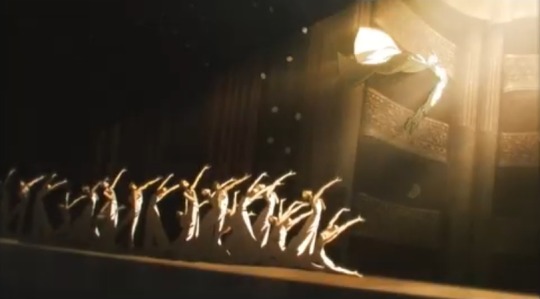
right side of the screen... east... literally shining light down from above the masses who are sitting in the dark... light coming from the right/east... he floats above them, a step above them all, in the "eastern sky"... seems quite fitting with "morning star"!
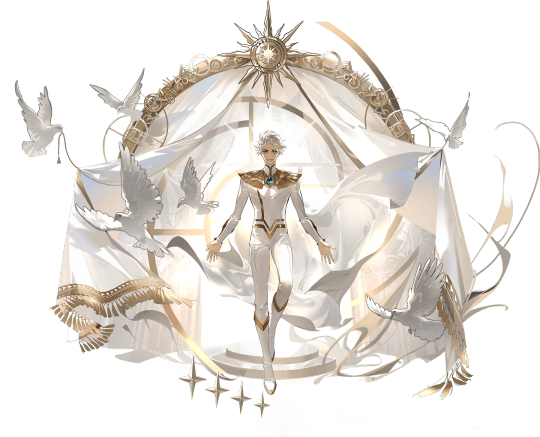
his theme in general. the many stars, the pure unstained white cloth, the doves, the singular larger sun/star emblem above him... morning star! (and the golden ratio in the back, for perfection!) (if I remember correctly doves also have some spiritual/biblical meaning. salvation I think?)
now that is the end of a rather long yap. I feel that overall the Chinese translation sounds a little more optimistic and determined (?) than the original English lyrics, which is interesting! Can't wait to see how Nice and Lin Ling's story unfolds :)
#to be hero x#tbhx#tbhx nice#凸变英雄x#tu bian yingxiong x#tbhx paragon#again im not very confident in my analysis of Chinese old texts#though i did do research but if there are any inaccuracies i am sorry and feel free to correct me :')#wow that's a lotta yap. eng lit class coming in handy maybe
105 notes
·
View notes
Text
wei wuxian vs. pragmatism: what MDZS intends to say about righteousness
copy/pasting most of my rather bitchy reply into its own individual post because i think it deserves to stand on its own.
so i think we can all agree that MXTX intends for us to read MDZS and conclude that wei wuxian is ultimately a deeply heroic and righteous person. whether you as the reader agree with this assessment of wei wuxian's moral character is another question entirely, but at the very least it is fairly obvious to all of us that MXTX intends for us to read him as a good person.
so why does MXTX call wei wuxian a good person? what aspects of his character and which of his choices make him a good person? what moral framework and what definition of morality does MXTX employ in order to call wei wuxian a good person?
i posit that MXTX argues that wei wuxian is heroic precisely because he is not pragmatic - because he adheres to his moral ideals despite the consequences, and because he did not make moral sacrifices at critical junctures of his life. the first half of this post will argue that wei wuxian is not pragmatic. the second half of this post will argue that this is exactly why wei wuxian is heroic, and that the moral framework employed by MXTX is deeply idealistic instead.
so let's begin.
let's start by establishing two things.
first: what MXTX argues about morality through the narrative of MDZS and the reader's own beliefs about morality are two different things. me saying "MDZS argues that xyz is righteousness" and me saying "i think xyz is righteousness" are two different statements. the following analysis is concerned not with what i myself consider to be righteous, but rather what MXTX argues through MDZS is righteous.
second: wei wuxian is not pragmatic.
what does it mean to be pragmatic? unless we are speaking about the school of philosophy specifically (which i am not here), being pragmatic means being grounded in reality and focused on practical outcomes. it means being result-oriented and considering the consequences of your actions before you act; it means acting only after you have considered the potential consequences of all possible courses of action and have then decided which outcomes are acceptable. being pragmatic also means recognizing when achieving everything you want is impossible. and, in such situations, being pragmatic thus entails compromising to achieve a desired outcome, even if that means you don’t get everything they want. to put it in edgier terms, being pragmatic means being able to make moral sacrifices.
an idealistic person attempts the impossible. a pragmatic person recognizes when something truly is impossible.
wei wuxian is not pragmatic.
first, wei wuxian is not someone who carefully considers the consequences of his actions before he acts. in fact, he displays a startling lack of consideration for consequences. it repeatedly falls upon other characters to either try (and fail) to hold him back.
when wei wuxian punched jin zixuan for insulting first jiang yanli and then jiang cheng, did he consider that jiang fengmian and jin guangshan might then dissolve the betrothal, and that jiang yanli might have wanted to make a decision regarding that on her own? no. he just punched jin zixuan because he was mad that jin zixuan had insulted two people he loved.
when wen chao threatened mianmian, and lan wangji and jin zixuan stood up for mianmian, and then wei wuxian stood up for them by holding wen chao hostage in turn - did he consider that there might be consequences for humiliating and threatening the life of the son of a warmongering great sect leader who has already proven capable of attacking other sects? no. did he stop and think "alright, wen ruohan has already attacked the cloud recesses, which proves that he's willing to wage war against the other sects. threatening the son of a sect leader is an easy way to earn any sect leader's ire, and since i'm the first disciple of the jiang sect, this puts not just me but the entire jiang sect on wen ruohan's shitlist"? no. it would be one thing if wei wuxian weighed this possibility and then decided that rescuing an innocent girl and the people who defended her was more important was worth the risk - that would show that he considered the consequences and then made his choice. but the thought simply never entered his mind. he acted simply because he wanted to save mianmian, jin zixuan, and lan wangji from the wens; he did not think beyond that.
when wei wuxian busted the wen remnants out of the qiongqi pass labor camp, did he have a clear plan as to how he was going to weather the political fallout? did he have a plan more detailed than "live quietly in the burial mounds until everyone forgets about us"? no. when jiang cheng challenged him as to how he was going to survive the situation, he did not in fact offer anything more concrete than "we'll just wait for everyone else to forget about us." he blustered about being a once-in-a-generation genius who could accomplish the impossible, but he provided no actual plan as to how he was going to do it. this leads me to conclude that wei wuxian did not in fact have a long-term plan for handling the consequences when he went ham at the qiongqi pass camp - that, instead of weighing the consequences and then making his decision, he instead decided immediately that this was something he had to do, consequences be damned.
and then - on top of this - all of his following actions then point in the exact opposite direction of his stated plan of waiting for everyone to forget about them. because instead of doing anything to fade into the background, everything wei wuxian did instead just convinced the jianghu he was an intolerable threat.
and this was not a sustainable strategy.
one thing i really appreciate about MXTX is that she does not make the rest of the jianghu into one-dimensional villainous morons. it's quite easy for lazy writers who want a persecution plotline to have the rest of the story's society magically start hating on the protagonist for no good reason, to make every background character in the story's world a three-braincell moron. but MXTX is not that author. it speaks to MXTX's skill as an author that, from the perspective of the rest of the jianghu, fearing wei wuxian as a mortal threat was an entirely reasonable conclusion for them to come to.
first, the gentry's most recent direct interaction with wei wuxian during this time period is him threatening to kill all of them. when jin zixun doesn't give him the information he wants, wei wuxian straight up says: "if i want to kill everyone here, who can stop me? who dares stop me?" this is a threat! and - surprise - threatening to kill people naturally makes people think that you want to kill them!
next, wei wuxian refined wen ning's dead body into the first sentient fierce corpse in history, and also the strongest fierce corpse in living memory - and then took wen ning with him on night-hunts. that's where the reputation of "the yiling patriarch and his ghost general" comes from. this very naturally made the rest of society fear him even more, because now the guy who has just recently threatened to kill you has demonstrated even more of the power to easily do so! the unparalleled power to do so, which no one else possesses and it would be very hard for anyone else to counter! add in the fact that wei wuxian's activities were also attracting prospective disciples - people gathering outside the burial mounds because they wanted to learn demonic cultivation - and naturally the public is even more frightened, because now it looks like the guy who threatened to kill all of you is also gathering the political force to do so!
the public is incorrect about wei wuxian's intentions, of course. but what does wei wuxian do to correct these misconceptions? to rehabilitate his public image, because now his public image has the life of not just himself but also all the wen remnants under his protection riding on it? to prove to the public that he isn't an active threat to their lives - that he does not seek to murder them all in their beds - that it is safe for them to allow him to live, and that they can in fact survive if they don't kill him?
nothing.
it would be one thing if the story mentioned how wei wuxian tried to correct the malicious rumors about himself and failed. but that is not what happened. what happened is that wei wuxian sat on his corpse mountain and let everyone else say what they wanted to say. and when he left his corpse mountain, it was to bring his one-of-a-kind unparalleled sentient fierce corpse with him on night-hunts, which of course just fanned the flames of the rumors instead. he doesn't even tell the prospective pupils camped on his front door to fuck off - he just sneaks in through the back door.
this is not pragmatic behavior. though you can argue that wei wuxian's strategy here was to become so powerful and so scary that no one would dare try to fight him, anyone with a brain can tell you that this is not a sustainable solution in the long-term. first, if you want to use threats to keep someone from attacking you, you also need to promise stability - you need to give people the reassurance that if they don't start shit with you, then you'll leave them alone too. if you drive the "threat" factor too high, as wei wuxian did, you instead end up convincing people that if they do nothing you'll kill them anyways - that they have no choice but to kill you if they want to survive.
second, if you want to use threats to keep someone from attacking you, you also need to prepare for the inevitability that, if someone does end up getting hurt, everyone will blame you first and no one will want to hear your side of the story. after all, if someone gets hurt, then the first suspect everyone looks towards will be the guy who's been consistently saying "i'm strong enough to hurt you! i'm strong enough to hurt you! don't start shit with me because i'm strong enough to end you!" for the past few months. this is basic common sense. and yes, the society of MDZS is unfair - wei wuxian deserved a proper trial and investigation after the death of jin zixuan. but the fact that society is unfair is something a pragmatic person would have recognized and planned for.
wei wuxian did not recognize and plan for this reality. even after he accidentally kills jin zixuan, wei wuxian still insists that if only the jianghu investigates jin zixun's hundred holes curse, they'll see that wei wuxian didn't cast the hundred holes curse, they'll see that there was more scheming going on, etc etc. wen qing has to directly spell out for him that, at this point, society no longer cares about the truth of the matter. it seems that wei wuxian was actually oddly idealistic about the true nature of his society all the way until the very end.
all of this leads me to conclude that, when wei wuxian busted the wen remnants out of the qiongqi pass labor camp, he did so without considering the consequences of his actions. he assumed that he could improvise and weasel his way out of this situation, as he's always done in the past with his typical genius - only this time, he was wrong.
wei wuxian acts without considering the consequences of his actions. he does not make a decision only after carefully deliberating over all of the potential outcomes - not at all. instead, he acts in the moment - not out of any rational consideration of potential outcomes, but rather because it is simply something he must do. this by definition makes him a deeply unpragmatic person.
to put it into more familiar terms, for wei wuxian, the righteousness of an action comes not from its consequences, but are rather inherent to the action itself. even if he were doomed to fail, he could not give up on the wen remnants.
second, at critical junctures, wei wuxian is unable to make moral sacrifices. to be pragmatic is to know when you have to sacrifice: to know when, in order to achieve the most inalienable of your goals, you have to give up on some of your other goals. this is something wei wuxian is consistently unable to do.
of course, when it comes to his own wellbeing, wei wuxian is all too willing to sacrifice. he'll carve out any number of his internal organs to save those he loves. but this honestly speaks less to wei wuxian's moral framework and more to his lack of self-worth from a troubled upbringing.
because, when it comes to any moral cause, wei wuxian is entirely unable to sacrifice anything, even if being unable to sacrifice entails more negative consequences. wei wuxian could not sacrifice mianmian, jin zixuan, and lan wangji to wen chao and his goons, so he took action and took wen chao hostage himself. to sit back and do nothing as wen chao threatened the lives of those three was simply unthinkable for him - even if it meant taking a course of action that put yunmeng jiang in danger.
wei wuxian's relationship with jiang cheng deteriorated because jiang cheng did not know about the golden core transfer: because jiang cheng did not know that wei wuxian could no longer cultivate, from jiang cheng's point of view, it looked like wei wuxian was just refusing to help out and fulfill his promises for kicks. wei wuxian could have made things a lot easier for himself and also any wen remnants he chose to rescue had he simply told jiang cheng the truth - but he knew that finding out the truth of the golden core transfer would make jiang cheng miserable, and [jiang cheng's happiness] was not something he was willing to sacrifice.
wei wuxian's single most prominent moral decision is his refusal to allow the wen remnants to be sacrificed. anyone with a shred of political sense had to know that rescuing the wen remnants and then protecting them would be near impossible - that it entails making an enemy of the jin, and due to the jins' power, the entire jianghu. wei wuxian himself knew this; he is no moron. wei wuxian also had no long-term plan, no allies, and significantly less power than the rest of the world believed. yet, despite this all, he acted anyways, because he could not let the wen remnants be sacrificed.
the wen remnants wei wuxian rescued from the qiongqi pass labor camp included both regular civilians and cultivators. perhaps wei wuxian could have negotiated a proper release for the non-cultivating civilians, such as granny wen and a-yuan, had he chosen to give up on the cultivators. but - the question of whether this would have worked or not aside - this was not a sacrifice wei wuxian would be willing to make.
nor could wei wuxian sacrifice the safety of yunmeng jiang. i am firmly of the belief that, had yunmeng jiang formally stood by wei wuxian's side after wei wuxian attacked the jin-run labor camp, lanling jin would have eventually declared war on yunmeng jiang, and yunmeng jiang's would inevitably be destroyed. both wei wuxian and jiang cheng understood this as well - which is why wei wuxian told jiang cheng to let him go.
(you can argue - successfully - that wei wuxian did in fact sacrifice [his obligations to yunmeng jiang and his promise to jiang cheng] by leaving yunmeng jiang to protect the wen remnants. this is true. but i think that - from wei wuxian's point of view - this was not much of a sacrifice, because due to wei wuxian lacking a golden core, he already viewed himself as mostly useless to yunmeng jiang. so him leaving - in his view - is not really that much of a loss for yunmeng jiang.)
wei wuxian promised wen qing that he would return wen ning's consciousness to his corpse. when wei wuxian made this promise, he had no idea if he could actually pull it off or not. but then he did - and, in the process, created the most dangerous weapon the jianghu had seen in living memory. wen ning specifically, or moreso wei wuxian's inability to control him, leads to so much of wei wuxian's eventual downfall: wei wuxian loses control of wen ning and accidentally kills jin zixuan; when wen ning goes to turn himself in at jinlintai, he ends up going berserk again and killing another 10-20 jin and lan cultivators, which leads to the nightless city pledge conference. frankly, wei wuxian could have avoided a lot of trouble - or at the very least, a lot of the public's fear - had he not raised wen ning from the dead. it's not like he'd be completely defenseless without wen ning, either. but wei wuxian promised wen qing he would resurrect wen ning - and he could not sacrifice his promise to wen qing because of what wen qing had already done for him.
a pragmatic person is able to make sacrifices, including moral ones. at the very least, a pragmatic person recognizes when sacrifice is inevitable, when all paths lead to something being lost. a pragmatic person, put in the trolley problem, would recognize that there were only two options and that both options involve sacrifice: either he must kill one person, or he must allow five people to die. there is no path forwards in which all six people live.
wei wuxian is unable to make moral sacrifices. he clings on to all of these moral causes, all of these promises and obligations, and it is precisely because he attempts to hold onto all of them that he ends up losing everything. to reuse the previous example, wei wuxian in the trolley problem tried to save all six people because he could not accept any of the sacrifices made inevitable by the trolley problem.
to put this all together - wei wuxian is not a pragmatic person. he makes decisions with his gut, not his head - he does not consider the consequences of his actions before he acts. nor is wei wuxian able to make sacrifices - even necessary ones in order to avoid greater tragedies.
but. none of this means that wei wuxian is not a deeply heroic person. rather, to do what you believe to be righteous and attempt to live up to your ideals despite the consequences is exactly what MXTX lauds as moral. and to be unable to make a moral sacrifice when everyone else in your society easily does so is in fact deeply heroic.
it is precisely because wei wuxian is not pragmatic that MXTX declares him a hero.
some people, including myself, favor a moral framework that centers pragmatism and reason as virtues. to us, the ideal moral character is someone who makes decisions based on reason and not emotion, who considers the potential consequences of every course of action before making a decision, and who then, based on these inferred future consequences, uses reason to deduce which of all of the possible outcomes is the most preferable.
but this does not in fact describe wei wuxian, nor is this how wei wuxian views ethics. and to be honest, i don't think this is how MXTX views ethics either.
in all three of her stories, MXTX repeatedly comes down harder on the characters who make pragmatic decisions, the characters who are willing to sacrifice. in fact, killing sunshot soldiers while acting as wen ruohan's spy, and then killing nie mingjue's men in order to ensure a chance at killing wen ruohan and saving nie mingjue, was the pragmatic thing for meng yao to do, because that was the least bloody path forwards towards a sunshot victory over qishan wen. in fact, cutting ties with wei wuxian after he attacked the jin-run qiongqi pass labor camp was the pragmatic thing for jiang cheng to do, because it was the only path forward that did not put yunmeng jiang, his first and foremost responsibility, in the line of fire. and yet (though the situation is less clear with jin guangyao), MDZS as a narrative criticizes both jin guangyao and jiang cheng for these decisions - because, to MDZS, righteousness does not lie in pragmatism.
(this is a statement i personally disagree with. but we are here to discuss what MDZS wants to say about pragmatism and righteousness, not what i want to say about pragmatism and righteousness.)
by contrast, the one single act for which deeply controversial jiang cheng is ultimately lauded for in the narrative is also his single least pragmatic, most emotional act. the one single act of jiang cheng's that MDZS does not criticize is when, after the fall of lotus pier, jiang cheng ran out from his hiding spot to distract the wen soldiers from seeing wei wuxian. from a filial, duty-based point of view, this was a deeply stupid and unpragmatic course of action: jiang cheng's first and foremost duty, as the sole surviving jiang and new sect leader jiang, was to survive, rebuild his sect, and avenge his parents. from a consequentialist point of view, this impulsive choice is also what led to the domino-fall of tragedy that followed, since jiang cheng then got captured and had his golden core melted, which then led to everything else. yet this stupid, unpragmatic, and impulsive decision is ultimately the one act MDZS considers to be jiang cheng's single most heroic.
the key as to what MDZS considers to be heroic, what it considers to be righteous, lies in the jiang family motto: 明知不可而为之, attempt the impossible. this line, taken from the analects of confucius, can be considered to be a deeply deontological ideal. i find this twitter thread (warning to my followers: does kind of dunk on JC) to be rather helpful in elucidating this line's meaning.
to attempt the impossible, to try what shouldn't be tried. "ask yourself not whether you can do it, but whether you should...consider not the result but rather the journey - have a clear conscience regardless of outcome." in other words, what matters is less whether you succeeded or failed, or what sort of outcome your actions brought about - what matters is that you tried. what matters is that, in the face of overwhelming odds, you tried to do what you think is right. and even if you end up failing - even if everyone you sought to protect ended up dying - the fact that you tried still has moral weight.
this is why it was righteous of wei wuxian to save the wen remnants - even though the ultimate consequences of that decision were overall negative, even though everyone wei wuxian tried to protect died. in fact, if wei wuxian had died immediately - if he had been shot down by jin archers at the qiongqi pass labor camp the moment he came within their range - if he had died before any wen in the labor camp realized someone wanted to save him - he would still be a righteous person. because, for MDZS, what makes an action righteous is not its consequences. for MDZS, what makes a person righteous is not what impact their actions have on the world, but rather that they have the sort of moral character that leads them to never give up on their ideals.
wei wuxian does not consider the consequences of his actions before he acts. or, should i say - wei wuxian makes decisions despite their consequences, because despite the consequences there are simply some moral causes he simply cannot give up on. wei wuxian did not save the wen remnants because it was pragmatic to do so. it was in fact deeply unpragmatic to do so. no - wei wuxian saved the wen remnants without a concrete long-term plan, without having thought through anything beforehand, with the knowledge of how weak he was in reality - because he could not give up on the wen remnants, consequences be damned.
to have some moral causes you simply cannot give up on, no matter the consequences - to MXTX, is deeply heroic. in this sense, MXTX's moral philosophy is not pragmatic at all, because to be pragmatic is to be concerned with practical consequences. instead, both wei wuxian and MXTX herself are deeply idealistic, because what matters to them are ideals and principles that extend beyond consequence.
as the linked twitter thread notes, this is why MXTX waits until the very end of the book to reveal that wen yuan, now lan sizhui, lived. this is why wangxian only meet mianmian and her family at the end of the book. this is why all of the cumulative positive impacts of wei wuxian's resurrection - jin ling forgiving wei wuxian, jin guangyao, and wen ning, for one - are kept to the end of the story: because MDZS needs to move away from the consequentialist argument. MDZS needs to establish that wei wuxian's righteousness is separate from the impact of his actions: that wei wuxian isn't righteous merely because his actions had a positive impact for which others can thank him, but rather because the actions he undertook were inherently righteous on their own. that even if none of these positive impacts existed - if wen yuan had also died, if mianmian hadn't made it - then wei wuxian's choices would still be moral.
this is also why MDZS ultimately comes down harder on characters like jiang cheng and jin guangyao, even though a more results-oriented moral framework would instead laud such characters. both jiang cheng and jin guangyao are deeply pragmatic characters: they put concrete results before abstract moral ideals, and they're willing to compromise on their ideals in order to achieve better results. i am a JC stan and a jiggy apologist because of these exact traits. but MDZS is a narrative that criticizes such pragmatism and instead holds up wei wuxian's idealism as a moral ideal - so, in order to advance its themes, the MDZS narrative ends up criticizing both jiang cheng and jin guangyao.
ultimately, this idealism - this criticism of pragmatism - lies at the heart of MDZS's themes. wei wuxian's righteousness is directly connected to the fact that he is not pragmatic. the fact that wei wuxian makes moral decisions despite the consequences, and that he is unable to sacrifice any moral cause - is all part of what makes him at once deeply unpragmatic and deeply heroic.
---
you see, the funny thing here is that i personally disagree with this theme. as i've said before, i'm a utilitarian. to me, the morality of an action does in fact arise from its consequences; to me, someone who compromises on their ideals to achieve better results is preferable to someone who adheres to all of their ideals and then loses everything. the character i consider to have had the greatest positive impact on this story's world is jin guangyao. the character i consider to have most dutifully fulfilled his obligations is jiang cheng.
therefore, i disagree with basically everything i wrote up there about "trying": i think that if you try to do the right thing, fail epically, and in the process of your failure get a bunch of other people killed as well, the fact that you failed this badly does in fact matter quite a bit. the bulk of my more haterish posts are born from this fundamental disagreement with what MDZS posits is righteousness.
however. as a reader i must recognize that [what i consider to be moral] and [what the author of this story considers to be moral] are two different things. my own moral philosophy may be heavily results-oriented, but MXTX's is much less so. therefore, regardless of what i think of wei wuxian, i conclude that MXTX ultimately intends for us to read wei wuxian as a heroic figure for the exact reasons i gave above - and that fact must then inform every analysis of MDZS i write.
#mdzs#wei wuxian#yanyan speaks#this analysis is also focused on wwx's first life bc wwx in his second life seems to give much fewer shits about moral causes tbh#second life for wei wuxian + all the good rewards at the end is basically a victory lap lol#anyways rip jiang cheng and jin guangyao for being pragmatists in a work that celebrates idealism#get dunked on ig#anyways wwx antis will read the above and go “well isn't this just a lot of words for 'the road to hell is paved with good intentions' ”#and like. yeah. that's correct#but mxtx is placing the majority of the moral weight on those good intentions imo#to mxtx - it is better to have heroic intentions and fail epically than it is to have unheroic intentions and achieve decent results.
268 notes
·
View notes
Text
The part in 'innocence' where Tuvok hands a scared 8 year old a gun and leaves after giving her instructions which are literally JUST "aim like this and press here to fire" is so interesting for his characterization because it isn't ILLOGICAL (she needs protection from a potentially life-threatening entity and he needs to leave for a moment) but it's also something that I don't think most other characters would think to do because. You know. It's giving a phaser to a child.
#star trek voyager innocence#tuvok#chara analysis#I hate when people write Tuvok as boring and 'wise old man' core and unassailably correct all the time#Picturing Samantha Wildman lecturing Seven & Tuvok: DON'T talk to Naomi about assimilation and DON'T let her walk around the weapons locker#<- Tuvok gave her a tour of the weapons locker so he could explain how Voyager has tons of weapons to defend themselves against the borg#but then she touched something sharp (he told her not to and forgot that non-Vulcan children are more willful) and had to go to sickbay
148 notes
·
View notes
Text
ATSV Fun Fact!! - Mumbattan Cultural Details
Gayatri & Inspector Singh follow the Sikh Religion
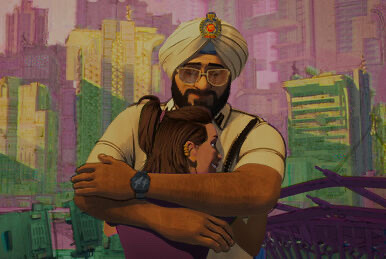
Have you ever heard of Punjabi Sikhs?
If you don't know - Sikhism is a religion that originates in northern India, specifically Punjab.
The turban Gayatri's father wears - along with his last name 'Singh' implies that her father is most likely a Punjabi Sikh.
I notice this the first time watching ATSV and was like 'wow that's so cool :)'
It only hit me today that 'Oh wait I don't think a lot of people know about this very-specific, rarely-mentioned religion maybe i should say something,'
And because I LOVE yelling about world culture, LET'S GO!!!
[a SHORT essay where I explain the basics of Sikhism, a religion built on equality and justice. And details in The Singhs design, and exactly why Sikh Representation matters]
So What's Sikhism about?
Often mistaken for Muslims - Sikhs are actually a non-Abrahamic religion, with 20 million followers worldwide.
But even with so many visible practicing members, most people know very very little about this beautiful religion!
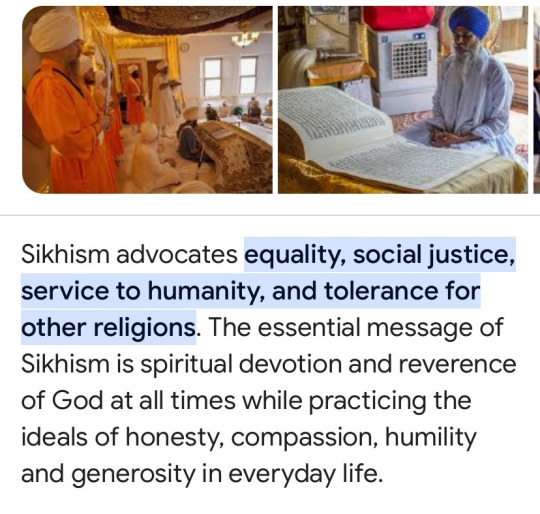
Sikhs believe in equality and unity - and defending the oppressed. Their book of faith, The Guru Granth Sahib Ji, is called 'Guru' for a reason - Sikhs see the book as not just a code of conduct, but as a living, breathing teacher for every practicioner;
From Wikipedia on Guru Granth Sahib: Sikhs since then [1708] have accepted the Guru Granth Sahib, the sacred scripture, as their eternal-living guru, as the embodiment of the ten Sikh Gurus, the highest religious and spiritual guide for Sikhs. It plays a central role in guiding the Sikh's way of life.
The Guru Granth Sahib is the spiritual leader of Sikhism, and it's treated as such.

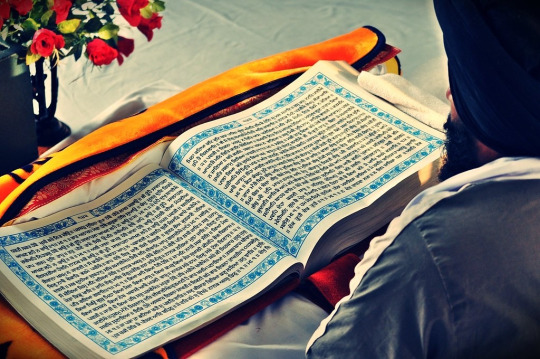

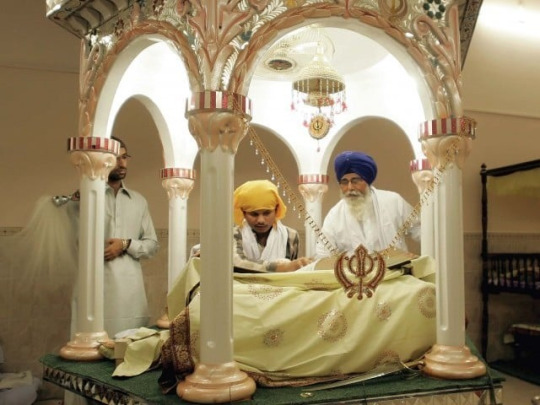
That's why in Gurdwaras - their place of worship - it's treated as such, being clothed and held in ornate structure, constantly fanned throughout it's readings (the fan you can see in the left picture).
They believe that by following the Guru Granth Sahib Ji, they can cultivate compassion, peace, and harmony in their communities, while diminishing 'Mara' - concepts like hatred or violence.
Sikhs believe that every Sikh should revere themselves as champions of unity. And because of this many Sikhs have the same last name -
Kaur for women (Meaning Princess) and Singh for men (Meaning Lion).
Having the same last name also does away with the Indian caste system, making it another point of equality.
In ATSV Gayatri last name is Singh. However from my understanding, her name would most likely be Gayatri Kaur in reality.
I think they kept her last name as Singh as a deliberate choice to keep her initials as GS, like Gwen Stacy.
So is Gayatri Sikh?
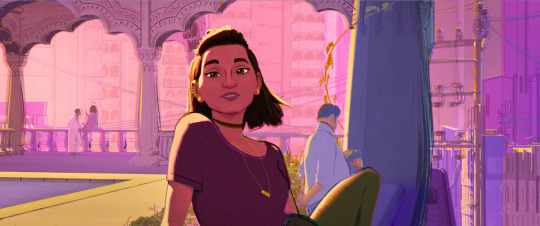
Maybe - most likely.
But we can't be sure. Mainly because of her hair.
Gayatri has a short bob haircut, and while that might not seem like it matters, it does!
In Sikhism there are the '5K's - different aspects Sikhs wear to show their faith.
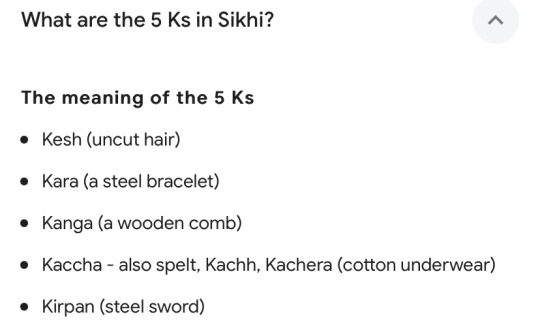
Notice the first one?
'Kesh' is the practice of leaving ones hair completely uncut. That's why you may see a lot of Sikh men with long, long beards!
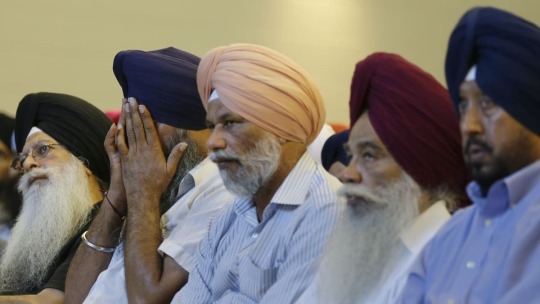
And hence, the large turbans.
It's done as respect for God's creation - leaving it unaltered.
[Fun Fact! - Rastafarians, a Jamaican religion, also don't cut their hair for this reason. Think Bob Marley. Rastas call God - Jah]
So, Gayatri having short hair means she doesn't keep Kesh.
However, Sikh is a super accepting and open religion, and it's main focus is on acceptance of difference, not conformity - so she could entirely follow the faith without doing all of any of the 5Ks.
Also, if you're curious about the steel sword K - Kirpan, yes that's a thing!
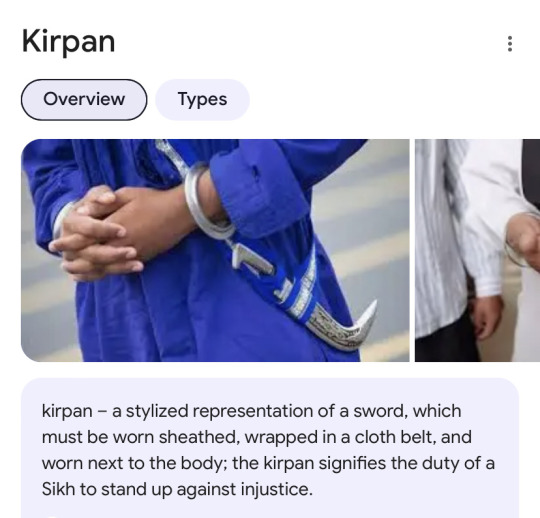
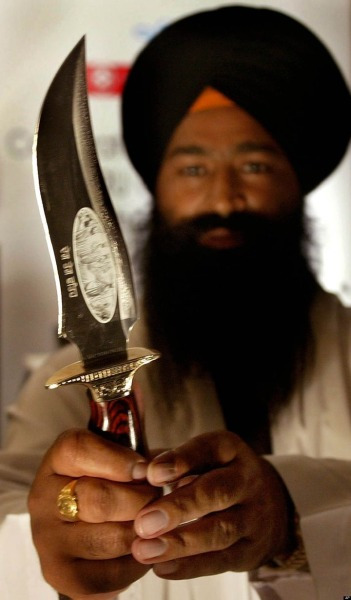
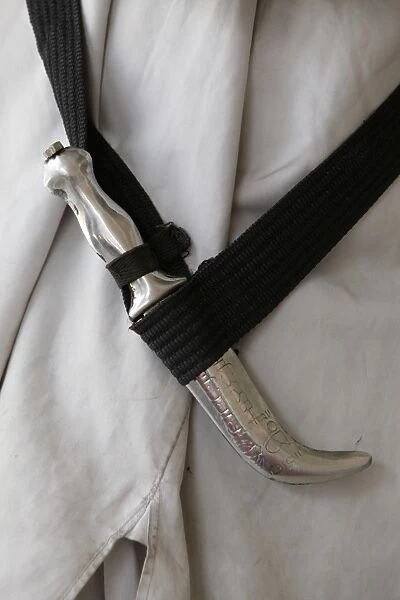
Sikhs of all genders are encouraged to carry a small ceremonial blade with them.
Instead it's a symbol of the commitment to fighting for what's right - and defending those who cannot defend themselves.
A Kirpan can ONLY be used to defend the life of yourself or others, which is incredibly rare.
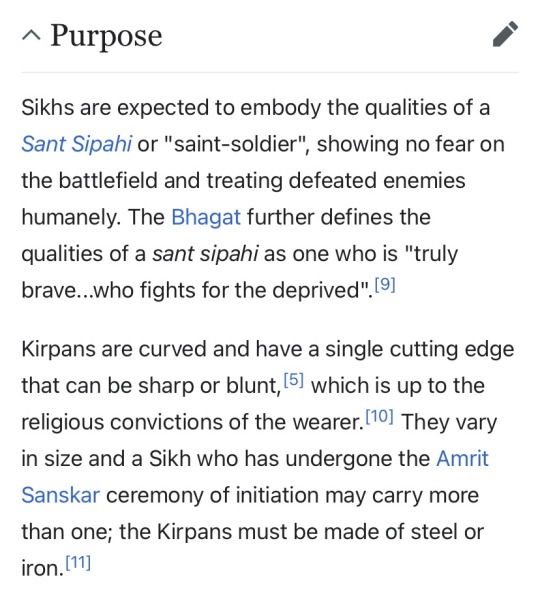

Why is this all so rad, cool, and important?
If you haven't noticed by now, Sikhism is a religion driven by justice. Not just in theory, but in really life as well.
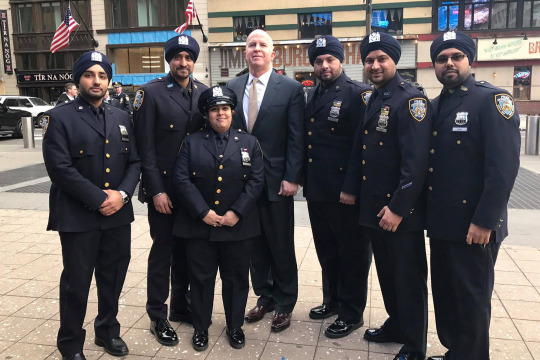

That's why you may see many Sikh police officers and politicians, even here in the West. Most of them wearing the emblem on their turbans.
In fact, Canada has SO MANY Sikh politicians, that in 2019 they elected 18 of them.
For centuries Sikhs have been dedicated to justice, and developing systems of support, whether that be political involvement or feeding those in need.
The biggest Gurdwara (a place of Sikh worship) The Golden Temple feeds over 100,000 people A DAY.
For FREE.
It's a practice called Langar. A communal meal anyone can enjoy. And of course, Langar food is vegetarian.
Making Inspector Singh a Sikh - and showing him saving people and being warm to his daughter on screen is great representation for a community so often overlooked! Despite the fact they are over 20 million practicing Sikhs.
It's a great detail for Indian and Punjabi representation in specific. It accurate shows their beliefs and commitment towards helping others, no matter the cost.
And from what we can tell, this choice came later in development. We know this because ALL of his concept art shows him with a turban, not keeping Kesh.
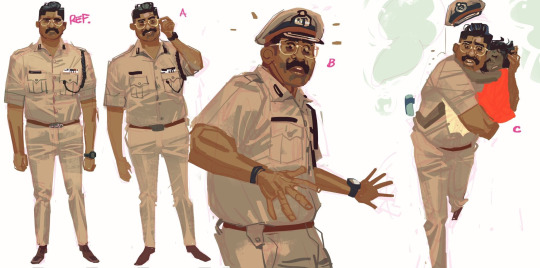
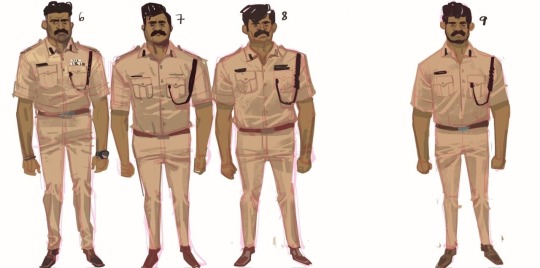
It seems like someone later on down the line said 'Wait if his name is Singh I think he's Sikh and if he's Sikh then we're gonna have to redesign him and make that obvious oops'.
That, dear audience, is why you always have an Anthropologist in the writing room. Or some amateur anthropologist like me :)
-------------
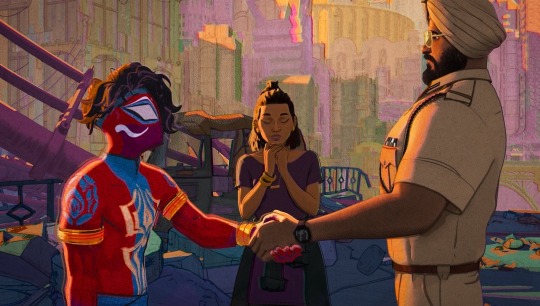
I hope you enjoyed reading this, I really enjoyed writing it!! Sikhism is one of my favorite religions and if you have never heard anything from the Guru Granth Sahib I HIGHLY recommend it, it's very optimistic and compassionate. Sikhnet(.)com is also a great resource!
I have no idea if this will pique anyone's interest, but I hardly ever see Sikhs reflected in media and I know many many people may confuse them with Muslim, especially since many women Sikhs keep kesh and cover their hair as well.
But if you ever wanted to know the difference, here it is! If you read this far, thank you SO MUCH. And if you're a Sikh and reading this, I LOVE YOU SO MUCH.
As usual, here's a photo of Hobie for your travels.
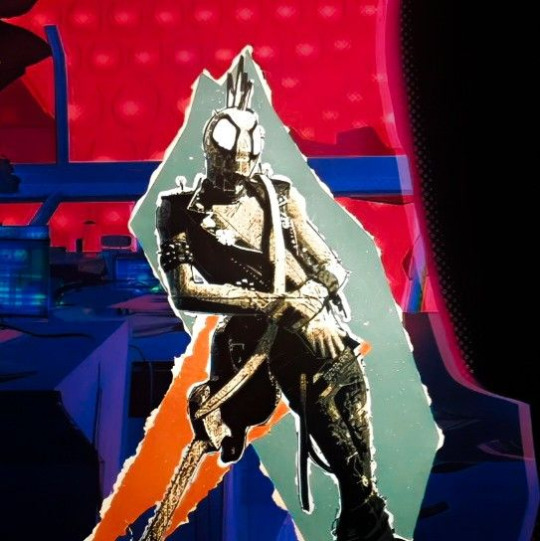
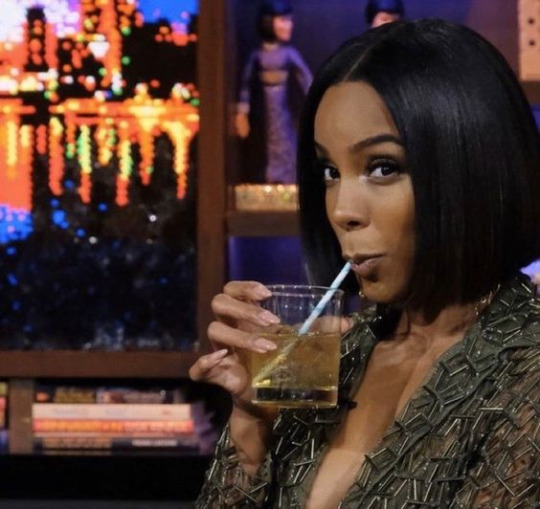
BYE.
#Did yall know about this? Idk know is any of this is common knowledge im gonna be real dugshjdgjks#It's a GREAT detail its so small but I love it#no proofread you get what i meant#and of course if you have any info to add or correct me on#feel free!! I wanna spread accurate info :)#spiderman#atsv#spider man#marvel#across the spiderverse#pavitr prabhakar#atsv meta#atsv meta analysis#meta#meta analysis#spiderman india#spider man india#pavitr#atsv pavitr#gayatri singh
524 notes
·
View notes
Text
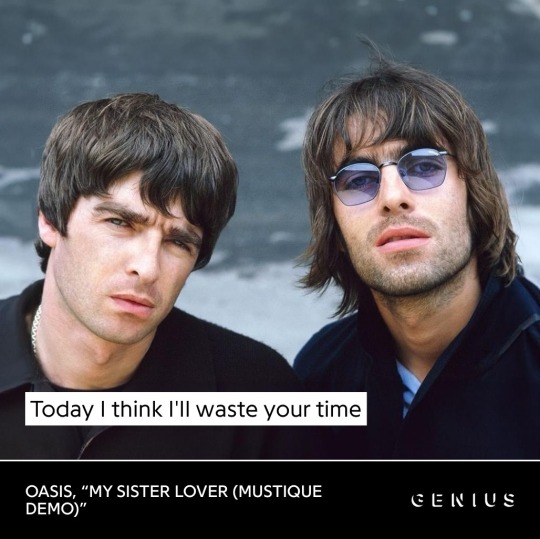
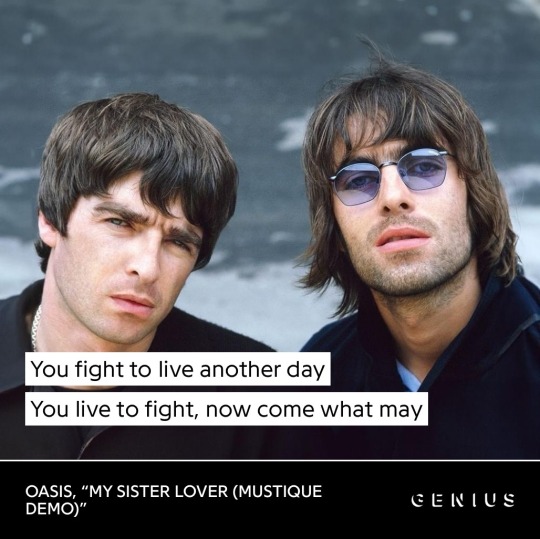
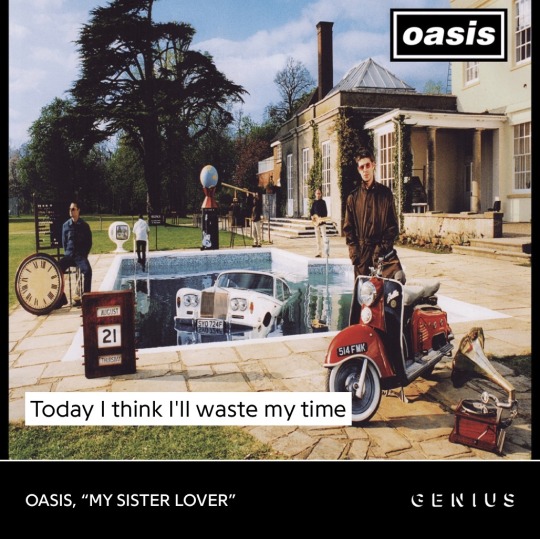
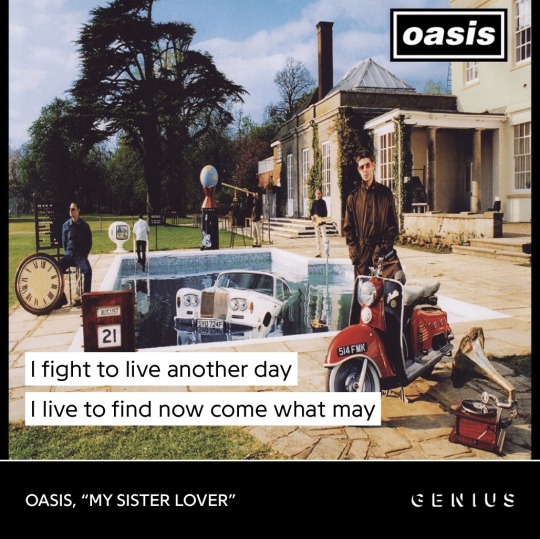
mustique demo came up on shuffle again and i've had my head in my hands for the past hour because truly what was this insanity. why does noel sing his song with a completely different set of pronouns than what he made liam finally sing? and i'm not even thinking about the lock all the doors lore right now. i'm just speechless because truly... whose confession am i listening to? i need to study noel's brain so bad jfc he was so insane for this. i'll never get over this song.
#noel gallagher#my sister lover#my sister lover mustique demo#liam & noel#truly what did he mean#i don't even think the genius lyrics are 100% correct but still#noel singing he will waste liam's time vs liam singing he will waste his own time#noel telling liam he'll live to fight another day vs liam telling that to himself#jfc this song is begging for a 10k word critical literary analysis#wanna do it so bad but i just know i'll not be able to do it justice bc noel is insane like that#god what a demo what a song
175 notes
·
View notes